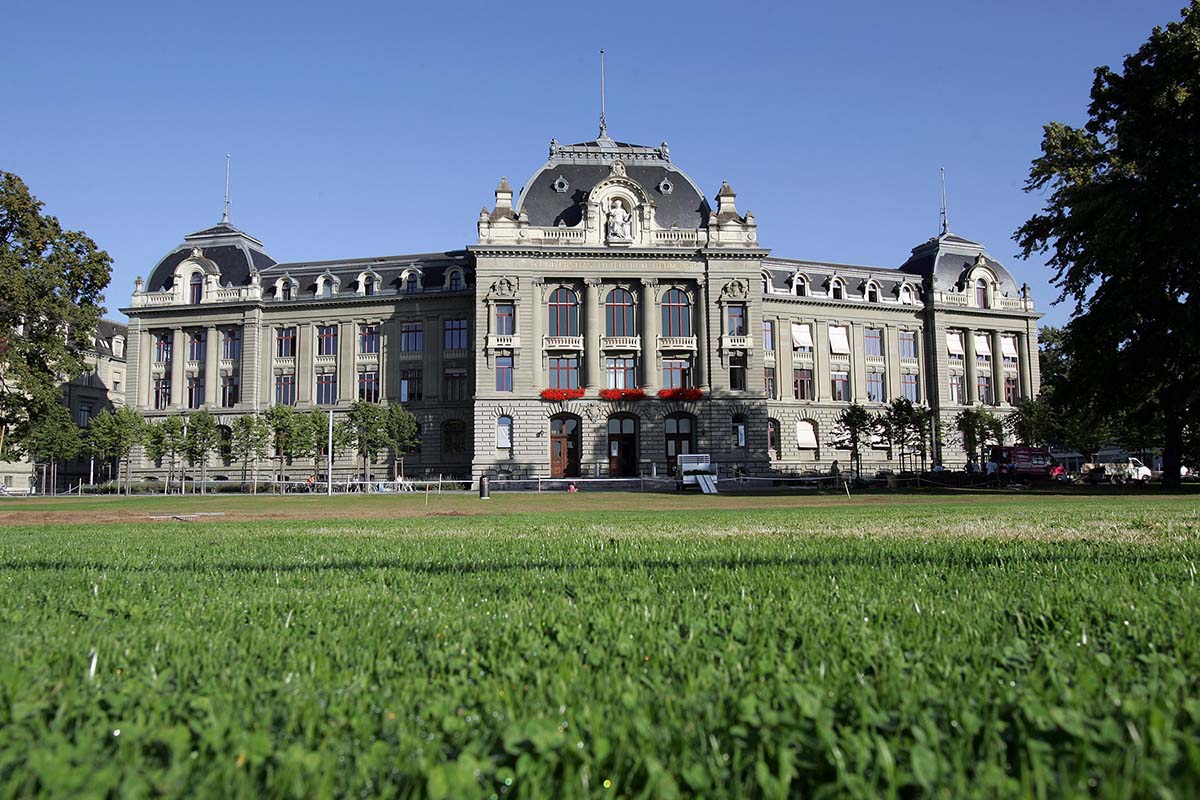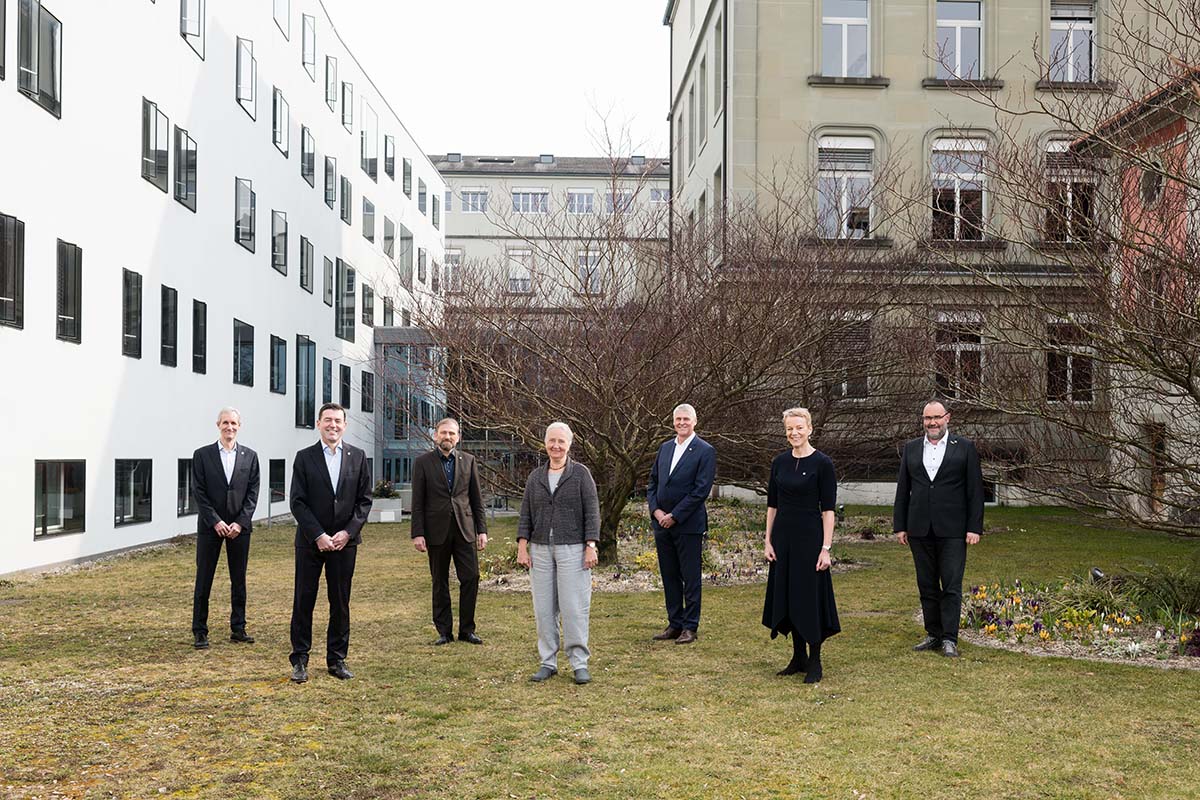Annual Report 2021: Science under constant pressure
The University of Bern celebrated numerous successes again in the past year. One of the highlights in 2021 was undeniably the return to in-person teaching. As a center for academia, however, Switzerland still faces some tough challenges, not only in connection with the pandemic but especially due to the consequences of the failed framework agreement between Switzerland and the EU.
“The biggest highlight of the past year was probably the return to in-person teaching at the start of the fall semester, which was made possible by COVID certificates,” says Rector Christian Leumann at the start of his video message in the new annual report. The on-site presence is a pivotal factor in the success of the University of Bern. According to Leumann, other highlights of 2021 include the opening of the Center for Artificial Intelligence in Medicine (CAIM) and the presentation of the Marcel Benoist Science Prize to Thomas Berger, a psychology professor and pioneer in online psychotherapy. Demand for digital tools like these is extremely strong, particularly in a pandemic situation.
It became very clear during the pandemic that politicians’ and the general public’s expectations of science exceed what the scientific community can deliver on short notice, as Rector Christian Leumann explains, “We need to do a better job of explaining to society how scientific research works. It’s essential that science adheres to its clear profile and prevents itself from being instrumentalized by politics. We need to preserve our independence and, in doing so, the trust we enjoy.”
International collaboration is pivotal
The universities are also relying on Swiss politicians’ ability to find some way to shift the country back onto a track that makes stable relations with the EU possible. “Despite the fact that the Swiss National Science Foundation is taking over the financing of parts of the ERC program, some key disadvantages still remain that will jeopardize the competitiveness of Switzerland’s cutting-edge research in the long term,” says Rector Christian Leumann. Virginia Richter, Vice-Rector for Development, also stresses, “Cooperation with other academic institutions in Europe, in particular, is immensely important to the success of the University, its researchers and its students.”
Combining in-person teaching with digital experiences
The 19,441 students of the University of Bern were largely able to return to the University’s facilities in 2021. But the return to in-person teaching didn’t mean that insights gained from digital teaching would simply be forgotten. “The goal was to consolidate the experience gained with digital teaching and effectively combine it with in-person teaching,” says Fritz Sager, Vice-Rector for Teaching.
Competitiveness jeopardized
In 2021, the University of Bern’s total revenue amounted to CHF 938.8 million. The result attributable to basic funding was a loss of CHF 5.1 million, which is attributable in part to delays caused by the coronavirus pandemic. However, with the inauguration of its new research and laboratory building at Murtenstrasse 24-28, the University took a huge step toward meeting up to the enormous challenge of providing adequate infrastructure and, in doing so, preserving the University’s ability to produce results. “Alongside the political framework, one of the University’s biggest challenges remains the renewal and expansion of its building infrastructure,” confirms Markus Brönnimann, Director of Administration.
Creative, successful research
Researchers of the University of Bern made vital contributions to answering urgent questions during the second year of the pandemic, as well. “This is where the strengths of our comprehensive university and its diverse range of disciplines come to the fore,” says Daniel Candinas, Vice-Rector for Research.
Promoting equal opportunity
One major achievement for the University of Bern was its successful accreditation by the Swiss Accreditation Council, which was granted without any reservations. Within the scope of its “Action plan: Equal Opportunities 2021–24”, the University of Bern is expanding the topic of equality with the addition of further issues such as physical and mental impairments, age, ethnic and social origin, sexual orientation and gender identity. “The goal is to establish equal opportunities with respect to access to study programs and employment,” says Silvia Schroer, Vice-Rector for Quality.
2022/05/04


